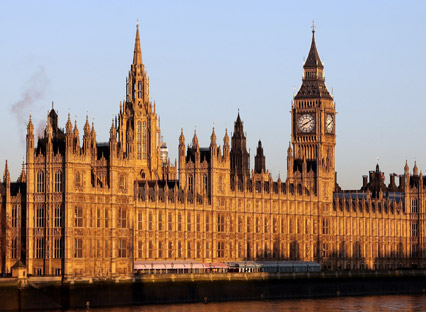Labour-led bid to block no-deal Brexit is defeated
Likelihood of no-confidence vote in government increases after outcome

A free daily email with the biggest news stories of the day – and the best features from TheWeek.com
You are now subscribed
Your newsletter sign-up was successful
MPs have rejected a bid to take control of Parliament’s timetable, blocking the latest attempt to stop a no-deal Brexit.
Labour spearheaded the move, which would have given opponents of a no-deal Brexit the chance to table legislation to prevent the UK leaving without any agreement on the 31 October deadline. It was rejected by 309 votes to 298.
Sky News says the outcome means the government has “survived an attempt by the opposition to seize control of the House of Commons agenda”, while The Guardian says it hands Tory leadership frontrunner Boris Johnson “a boost”. The former foreign secretary has insisted that the UK must leave the EU by the end of October with or without a deal.
The Week
Escape your echo chamber. Get the facts behind the news, plus analysis from multiple perspectives.

Sign up for The Week's Free Newsletters
From our morning news briefing to a weekly Good News Newsletter, get the best of The Week delivered directly to your inbox.
From our morning news briefing to a weekly Good News Newsletter, get the best of The Week delivered directly to your inbox.
The result was greeted with cheers from the Tory benches, while Labour leader Jeremy Corbyn was apparently heard telling Tory MPs: “You won’t be cheering in September.”
Ten Conservative MPs rebelled against the government by backing the motion. Eight Labour MPs - mostly Brexiteers or MPs for constituencies that voted Leave at the 2016 referendum – also rebelled against their party by voting against the motion.
Later, Sir Keir Starmer, the shadow Brexit secretary, said: “This is a disappointing, narrow defeat.”
But he added “this is just the start, not the end of our efforts to block no deal” and “any Tory leadership candidate should know that parliament will continue to fight against no deal”.
A free daily email with the biggest news stories of the day – and the best features from TheWeek.com
Former Tory minister Sir Oliver Letwin, who voted for the motion, argued that making sure the Commons had a “decisive vote” on the Brexit plan ahead of the 31 October deadline was bigger than party politics.
He warned that it was “perfectly possible” for the next PM to usher in a no-deal exit by “simply doing nothing” at all. Another Tory, the former attorney general Dominic Grieve, said the motion was the “last sensible opportunity” to stop no deal.
However, the longstanding Tory Eurosceptic Sir Bill Cash described it as a “phantom motion” which paved the way for “government by Parliament”.
MP Nick Boles, who resigned from the Tory party earlier this year, said: “No-deal Brexit on 31 October is back to being a racing certainty. It is very hard to see where any further legislative opportunities will come from.”
He added that a no-confidence vote to bring down the government is one option, saying: “So it’s now a question of politics – specifically whether a PM pursuing a no-deal Brexit can command and sustain the confidence of the House of Commons.”
The Guardian says for those who want to stop a no-deal Brexit, “it looks as though the only remaining option is likely to be the most explosive one – bringing down the government”.
-
 Russia’s ‘cyborg’ spy pigeons
Russia’s ‘cyborg’ spy pigeonsUnder the Radar Moscow neurotech company with Kremlin-linked funding claims to implant neural chips in birds’ brains to control their flight, and create ‘bio-drones’
-
 Political cartoons for February 8
Political cartoons for February 8Cartoons Sunday’s political cartoons include going down the drain, American history, and more
-
 Touring the vineyards of southern Bolivia
Touring the vineyards of southern BoliviaThe Week Recommends Strongly reminiscent of Andalusia, these vineyards cut deep into the country’s southwest
-
 Why the Gorton and Denton by-election is a ‘Frankenstein’s monster’
Why the Gorton and Denton by-election is a ‘Frankenstein’s monster’Talking Point Reform and the Greens have the Labour seat in their sights, but the constituency’s complex demographics make messaging tricky
-
 Reforming the House of Lords
Reforming the House of LordsThe Explainer Keir Starmer’s government regards reform of the House of Lords as ‘long overdue and essential’
-
 How long can Keir Starmer last as Labour leader?
How long can Keir Starmer last as Labour leader?Today's Big Question Pathway to a coup ‘still unclear’ even as potential challengers begin manoeuvring into position
-
 The high street: Britain’s next political battleground?
The high street: Britain’s next political battleground?In the Spotlight Mass closure of shops and influx of organised crime are fuelling voter anger, and offer an opening for Reform UK
-
 Biggest political break-ups and make-ups of 2025
Biggest political break-ups and make-ups of 2025The Explainer From Trump and Musk to the UK and the EU, Christmas wouldn’t be Christmas without a round-up of the year’s relationship drama
-
 ‘The menu’s other highlights smack of the surreal’
‘The menu’s other highlights smack of the surreal’Instant Opinion Opinion, comment and editorials of the day
-
 Is a Reform-Tory pact becoming more likely?
Is a Reform-Tory pact becoming more likely?Today’s Big Question Nigel Farage’s party is ahead in the polls but still falls well short of a Commons majority, while Conservatives are still losing MPs to Reform
-
 The launch of Your Party: how it could work
The launch of Your Party: how it could workThe Explainer Despite landmark decisions made over the party’s makeup at their first conference, core frustrations are ‘likely to only intensify in the near-future’